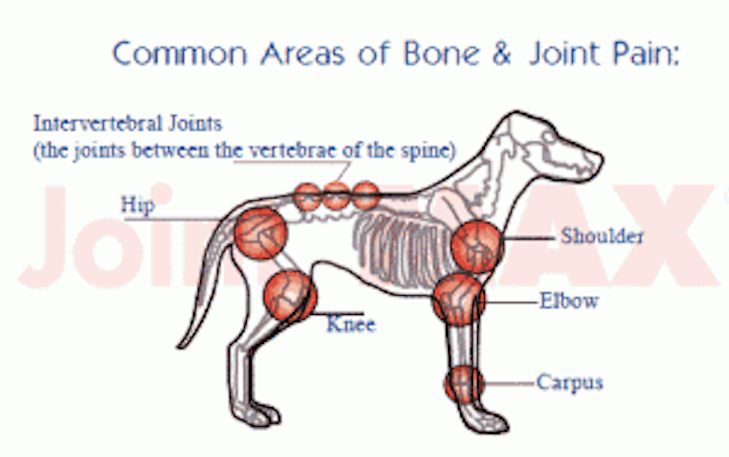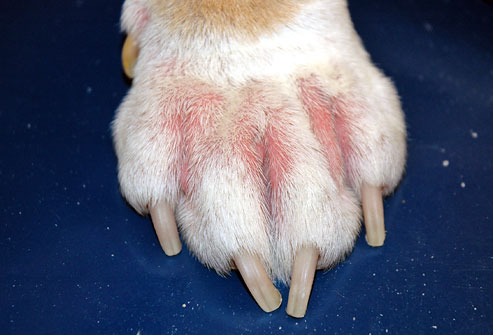Best Tips To Selecting Pet Wellbeing
Wiki Article
How Can Omega-3 Fatty Acids Help With Joint Health In Pets And Felines?
Omega-3 fatty acids and in particular EPA (eicosapentaenoic Acid) and DHA docosahexaenoic Acid play a essential role in maintaining the joint health in canines and cats. Here's why they are so beneficial:
Anti-inflammatory properties
Reduce inflammation:
Function The Omega-3 fatty acids exhibit significant anti-inflammatory properties. They block the production of pro-inflammatory cytokines and eicosanoids, which cause inflammation.
Omega-3s can help reduce joint inflammation. They can help alleviate swelling and pain that is associated with arthritis. This allows for more comfort in movement for pets, thereby improving their overall quality of life.
Joint Lubrication and Health
Enhancement of Joint Lubrication
Function: Omega-3 acids are essential to maintain the health of synovial fluid that lubricates your joints.
Benefits: More lubrication results in smoother joint movement and less friction. This decreases wear and tear on the cartilage. This is particularly beneficial to pets who have joint problems or might develop one.
Cartilage Protection and Repair
Cartilage Protection:
Function: Omega-3s aid in keep cartilage healthy by reducing enzymes that destroy cartilage.
Benefits: Preventing degradation of cartilage can aid in maintaining joint strength, and even slow down the progression of diseases like osteoarthritis.
Immune System Support
Immune System Regulation:
Function Omega-3 fatty acids to regulate the immune system, encouraging a balanced inflammatory response.
Benefits An immune system that is healthy can better handle joint pain, while preventing injury and inflammation.
Comfortable Mobility and Increased Comfort
Improved Mobility
Omega-3s are efficient in reducing inflammation, preserving joints and aiding pets to move more easily.
Benefits A lot of pets, especially older animals or those with arthritis show less pain and better mobility. This leads to a happier and more active life.
Additional Health Benefits
Overall Health:
Function The Omega-3 fatty acids support cardiovascular, skin, and coat health. These can contribute to the overall health of pet.
Benefits of having a healthy pet: A healthy pet is more active and will have more joint health.
Use and Considerations
Dosage and Administration: The proper dosage of Omega-3s depends on the pet's size, weight, and specific medical conditions. Please follow your veterinarian or the directions on the label for the product.
Sources of Omega-3s Top-quality fish oil supplements are a popular source of EPA and DHA. To ensure the safety and effectiveness of your pet, it is important to use products that have been specifically designed for pet use.
Omega-3 supplements can trigger adverse consequences. Some pets experience fishy breath or gastrointestinal problems. To avoid any adverse effects, begin with a small amount and gradually increase the dosage.
The article's conclusion is:
Omega-3 fatty acid is highly beneficial for joint health in dogs and cats. Their ability to shield cartilage and improve joint lubrication as well their anti-inflammatory properties help to ensure better joint function. Regular supplementation can lead to improved mobility and an overall healthy, active lifestyle for pets. Check out the top naturalpetsupplements.com.au supplements for website advice including pet health supplements, pet rhodiola supplements, pet coat supplements, pet supplements for pets with spinal problems, pet holy basil supplements, pet supplements for foster pets, pet supplements for pets with grooming anxiety, pet cbd supplements and more.

What Does Omega-3 Fatty Acids Work To Help Dogs And Cats With Kidney Failure?
Omega-3 fatty acids and in particular EPA (eicosapentaenoic acid) and DHA (docosahexaenoic acid) are able to help treat kidney problems in dogs as well as cats, by delivering numerous advantages that improve kidney health and overall well-being. Here's what they do to aid in managing kidney failure:
Anti-inflammatory properties
Reduced Inflammation
The function: Omega-3 fats possess an anti-inflammatory and strong effect by reducing the production of proinflammatory cytokines.
Benefits In reducing inflammation within the kidneys, omega-3s can help alleviate the progression of kidney damage and improve kidney function.
Blood Pressure Regulation
Lowering blood pressure:
Function: The omega-3 fatty acids help to regulate blood pressure through enhancing vascular function and reducing inflammation within the system.
Benefits Lower blood pressure may lower the stress on kidneys, assisting to stop the progress of kidney disease and ensure that the kidneys are functioning properly.
Proteinuria Reduction
Reducing Proteinuria:
Function: Omega-3s can assist in reducing the loss of urine proteins (proteinuria) which is a frequent problem associated with kidney disease.
Benefits of reducing proteinuria: This can help protect kidney function and minimize further kidney injury.
Glomerular filtering rate (GFR), preservation
Supporting Kidney Filtration
Function: Omega-3 fatty acids are essential for maintaining the integrity of kidney's glomerular filtration process.
Benefits: A steady GFR helps preserve kidney function and slow down the progression of chronic renal disease.
Appetizer Stimulation and Nutritional Support
Improving appetite:
Omega-3s help to improve appetite and boost the amount of nutrition consumed by pets with kidney disease.
Benefits: A higher intake of nutrition supports overall health and can help maintain the body's weight and muscle mass, which is important for pets with kidney disease.
Cardiovascular Health
Supporting Heart Health
Function: Omega-3 fatty acids aid in maintaining cardiovascular health by reducing blood pressure, inflammation and improving lipid profile.
Benefits: Improved cardiovascular health can lower the risk of complications associated with kidney disease, like heart disease, and enhance overall health and well-being.
Antioxidant Effects
Reducing Oxidative Stress:
The function: The antioxidant properties in omega-3 fatty oils aid in reducing oxidative strain on the kidneys.
Benefits: Reduced oxygenative stress shields kidney cells from damage, leading to improved kidney function.
Considerations and Usage
Dosage and Administration: The quantity of omega-3 fatty acids to administer depends on the weight, size, and health condition of your pet. The recommendation of the veterinarian or product's label is crucial. Omega-3s found in fish oil can be found in supplements designed for pets.
Omega-3 supplements are available in many varieties. They can be found in liquid oils, capsules, and chewables. Select a high-quality product to ensure safety.
Omega-3 supplements are generally pet-safe, however they may cause upset stomachs. You can reduce side effects by starting at the lowest dosage, and then increasing it over time. Be aware of any reactions that could cause adverse effects including vomiting or diarrhea is important.
Conclusion
Omega-3 fatty oils be beneficial in the treatment of kidney failure in dogs and cats. Their anti-inflammatory, blood pressure-lowering, proteinuria-reducing, and appetite-stimulating properties help support kidney function and overall health. Omega-3 supplements can reduce the rate of progression of kidney disease and improve quality of life and boost the health of animals suffering from renal failure. Check out the most popular pet wellbeing for website advice including pet stress relief supplements, pet quercetin supplements, pet supplements for show dogs and cats, pet supplements for pets with anxiety disorders, pet supplements for pets with thunderstorm phobia, pet dental supplements, pet supplements for pets with fear of music, canineceuticals and more.

How Can Oregano Oil Aid With Dog And Cat Yeast Infections?
Oregano oils are often used to treat yeast infections, specifically for dogs and cats. They possess powerful antimicrobial properties that work against Candida. Oregano oil is effective against yeast infections.
Antifungal Properties
Active Compounds:
The function: Oregano oil contains carvacrol and thymol. Both are powerful antimicrobial agents.
Benefits : These compounds block the growth of fungi and Candida species that cause yeast infections.
Antimicrobial Activity
Broad-Spectrum Action:
Oregano Oil has broad-spectrum antimicrobial properties, which includes bacteria and fungi.
Benefits: Its capacity to combat fungal growth helps decrease yeast-related infections in dogs as well as cats, especially on areas like the skin and ears.
Anti-inflammatory properties
Reduced Inflammation
Oregano Oil is anti-inflammatory, which can reduce symptoms such as redness and itching.
Benefits by reducing inflammation, oregano oil can provide relief and promote healing of skin irritations or mucous membranes affected due to yeast.
Immune Support
Immune Modulation:
Oregano oil boosts the body's natural defenses to infections.
Benefits: Boosting your immune system will help you fight off a yeast infection and prevent it from recurring.
Usage and factors
Application to the skin: Before applying oregano on the face apply it topically, dilute it using the help of a carrier (such as coconut oil or olive oil). The usual dilution ratio for oregano is 1 drop per tablespoon of carrier oils.
Avoid Ingestion: The oil of oregano is very concentrated and should not be ingested by pets without veterinary supervision, as it can be toxic when consumed in large amounts.
Patch Test Prior to applying the product to large areas of the body, you should test an area of a patch on your skin for any negative reactions.
Consultation with your Veterinarian: Always consult your veterinarian before you use oregano oil to treat yeast infections in pets. They can guide you in the right dilution methods, application techniques, and risks that may be associated to your pet.
Conclusion
Oregano is antibacterial which makes it a great natural remedy to treat yeast infections. Its ability to combat fungal growth, ease inflammation, and boost immune function can contribute to combating yeast infections successfully. It should be administered only under the supervision of a veterinarian to ensure your pet's safety and effectiveness. It is essential to adhere to veterinary guidance when you use oregano in an overall treatment plan for yeast infection in pets. Have a look at the top treatment for cushings disease in dogs for more recommendations including pet lemon balm supplements, urinary infection in cats, pet supplements for pets with fear of dental work, pet glucosamine-chondroitin supplements, pet goldenseal supplements, pet supplements for pets with fear of strangers, pet supplements for pets with fireworks phobia, pet supplements for pets with bad breath and more.
